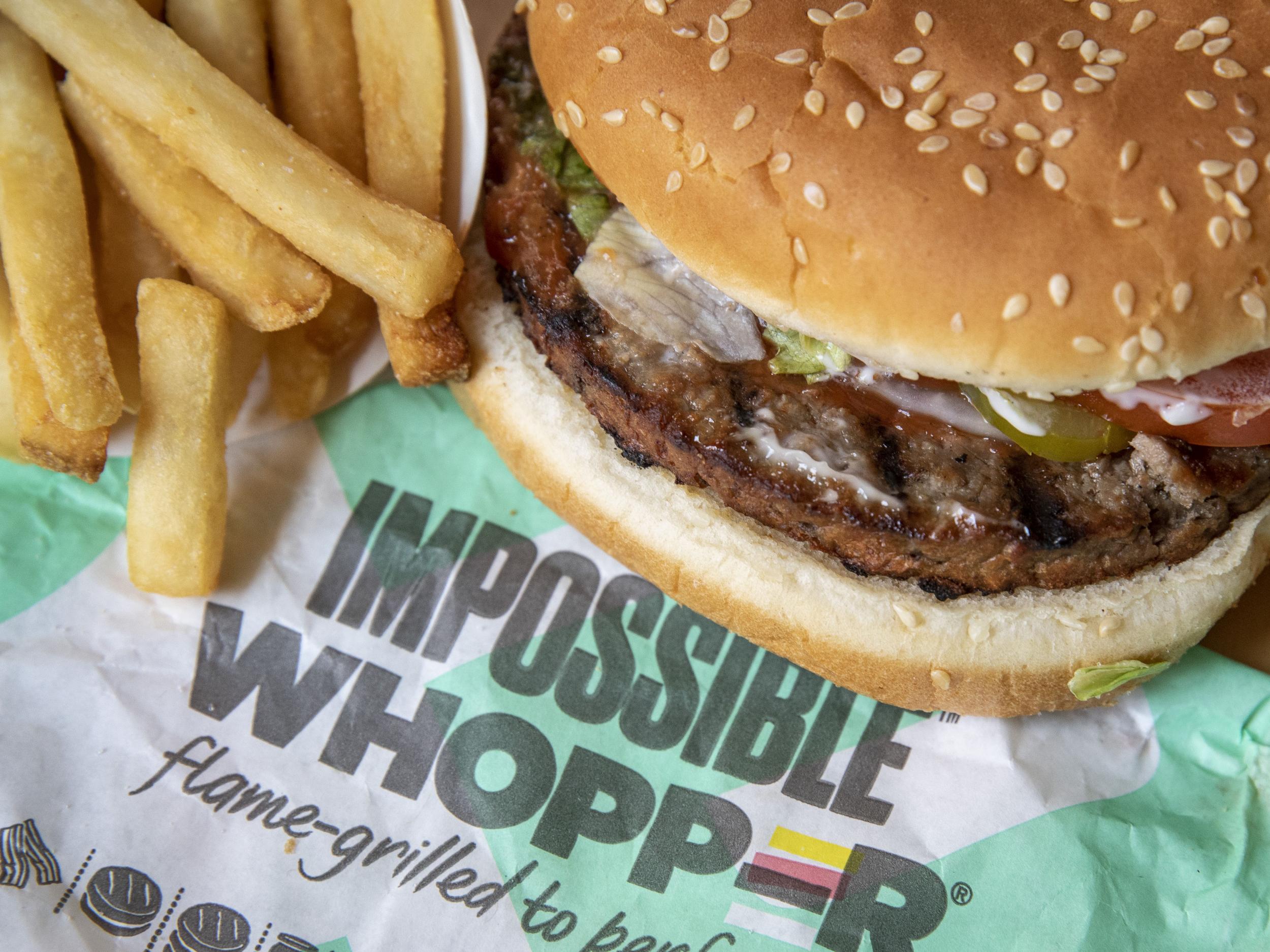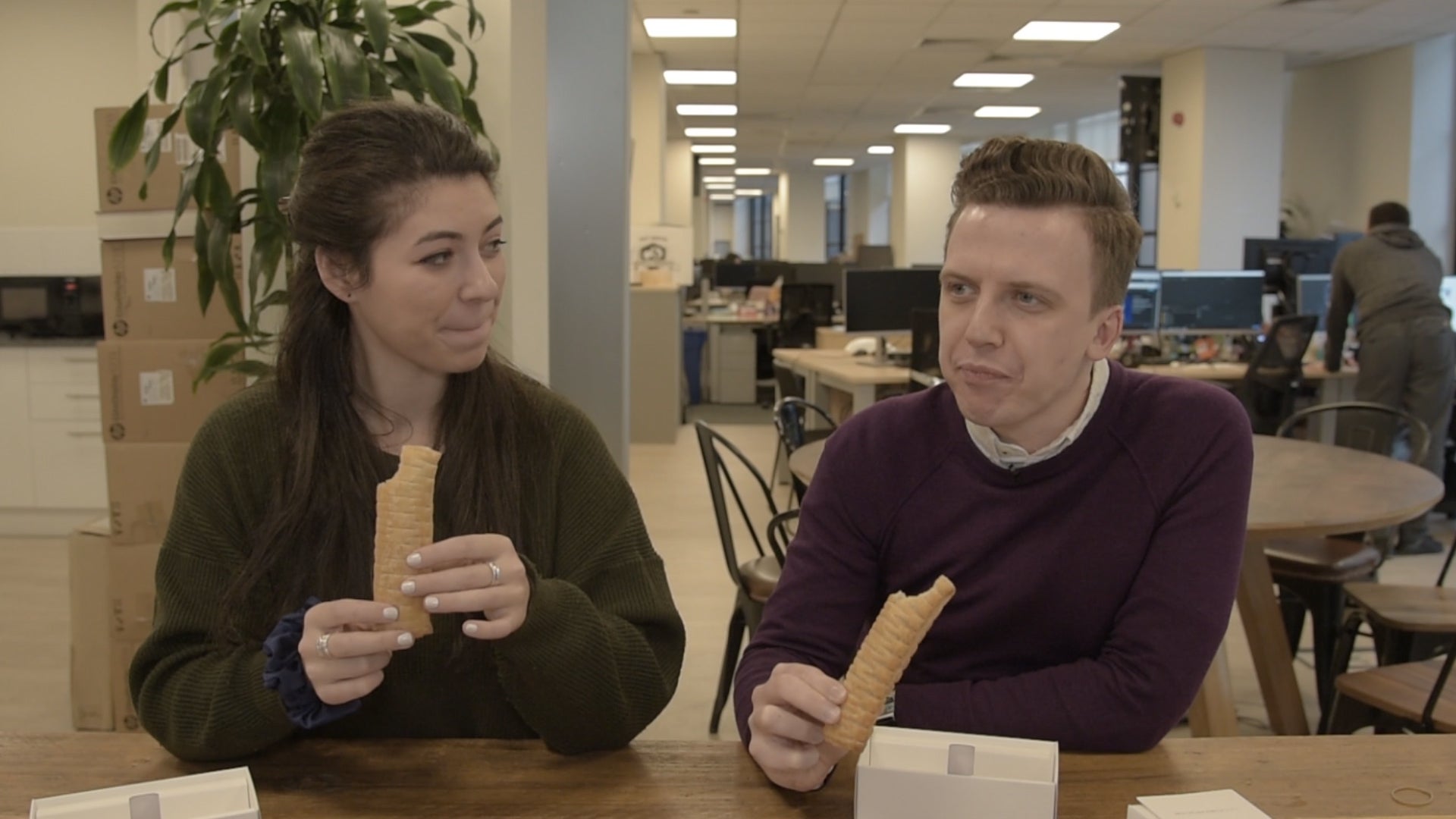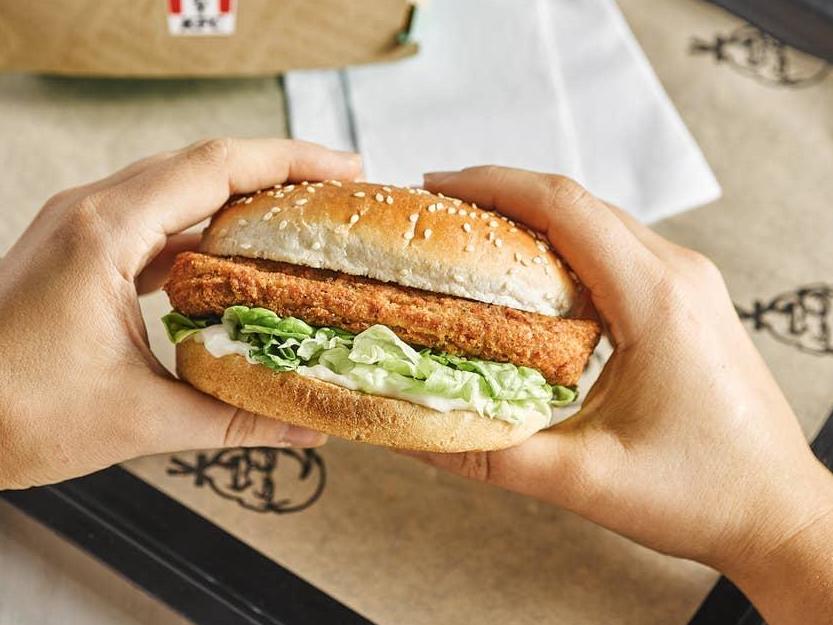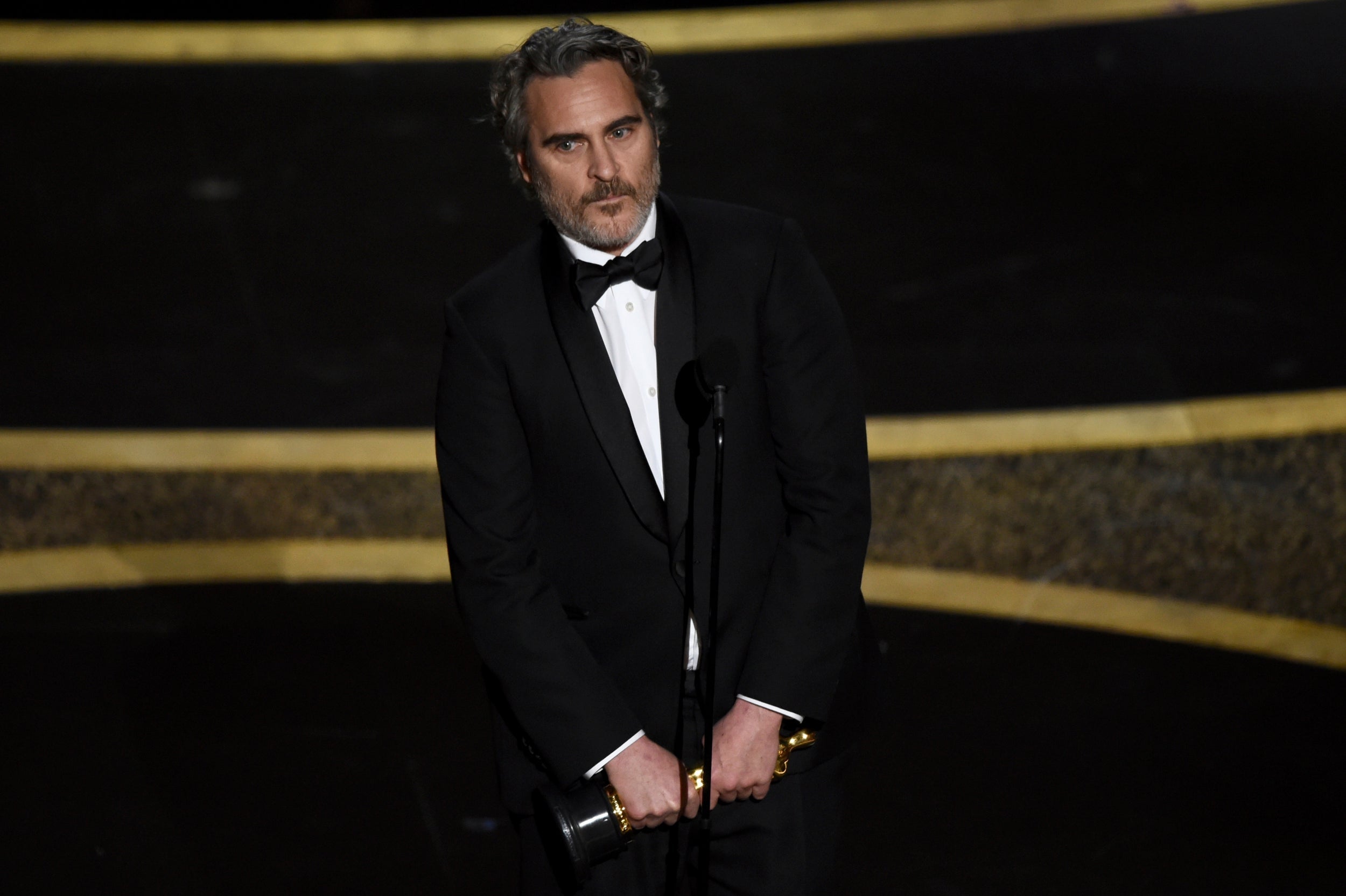Are fast food chains hijacking veganism?
Greggs’ vegan sausage roll, KFC’s zero chicken burger and Subway’s meatless marinara... there have never been so many options for vegans, but is this a good thing? Sam Hancock asks whether fast food chains are helping or hindering plant-based diets


I went vegan for eight months two years ago. I learnt many things, but here are a few key takeaways I’d like to share: there is some kind of dairy in what feels like everything (did you know there is milk powder in almost all crisps?); it’s harder to commit to wearing vegan trainers than it is to eating a vegan breakfast, lunch and dinner; people will ask you what you eat – constantly; a lot of jokes are made at your expense; your skin really does get better if you eat less dairy; and lastly, arguably most importantly, it’s hard to find good drunk food. Or it was, until recently.
When news broke at the end of last year that not just one but four major fast food chains in the UK were adding vegan items to their menu, I was thrilled. Even though I eventually gave up my plant-based diet and returned to my now six-year vegetarian one, I would still benefit from this move. Goodbye all-I-can-eat-is chips, hello KFC’s zero-chicken burger, Gregg’s vegan Steak Bake, Subway’s Meatless Marinara and Burger King’s plant-based Whopper.
Granted, it wasn’t Gregg’s first foray into the plant-based world: in fact, the baker’s vegan sausage rolls – which launched in January of last year – have been so successful, the company announced a “phenomenal year” for sales in 2019, driven in part by its new product, and that it would share a £7m bonus equally between staff. But for the rest, it was a real landmark moment.
Journalists, vegans, and in a lot of cases, non-vegans, rejoiced: finally, some inclusivity! Though while it is, undoubtedly, the ethically and environmentally right thing to do, it seems important to question whether introducing vegan fast food to some of the world’s biggest chains is a good idea. More than that, is it a healthy idea?
“Vegan” and “plant-based” are a couple of the biggest buzzwords of the past decade, that along with extinction, rebellion, climate, change, Corbyn, #MeToo, Greta and Thunberg. Yet somewhere along the way, the true meaning of the word has been lost – presumably in the midst of social media influencers posting selfies of themselves at all-vegan burger bars, hashtagging #health and #cleaneating underneath them. That, and the resistance people have shown to the “elite”, which of course in our day and age means Hollywood A-Listers, who use their platform to tell the world it must stop abusing and eating animals.
When Joaquin Phoenix, for example, picked up the Oscar for best actor last month, he spoke about equal rights for “the voiceless” which he said includes animals as well as ethnic minorities, LGBT+ people and, in some cases, women. He said: “We feel entitled to artificially inseminate a cow and steal her baby, even though her cries of anguish are unmistakeable. Then we take her milk that’s intended for her calf and we put it in our coffee and our cereal.”
He’s right, of course – and to argue with Phoenix is to deny a simple truth. But the idea of entitlement is conflicting in the vegan debate. When I spoke to Pixie Turner, a leading nutritionist based in London, about the positives and negatives of introducing vegan items to fast food menus, she too touched on the idea of it. “Giving up a food group entirely, let alone multiple ones, is a real privilege and that’s something that is very often – too often, in my opinion – left out of the conversation around veganism,” she says. “It’s all well and good for organisations to make people feel guilty for not being vegan, for not giving up meat, dairy and other animal products, but what they forget is that for some people – especially those who don’t have a lot of money or resources – this simply isn’t an option.”
There is much contention around the cost of a meat-free diet. On the whole, it is agreed that it is cheaper to be a vegetarian or vegan – by as much as almost £20 per family shop, according to Holland & Barrett – because meat is expensive, but it’s important to remember that this is if shoppers are buying fresh, usually organic meat, which isn’t always the case. A report by UK Credit in 2018 found that the cost of being a vegan, per individual item bought, is cheaper. The issue, the report says, is that there is less easily accessible food for vegans and “more ingredients are needed to make food taste better”, which hikes up overall costs.
While it is a well-known fact that salt is often added to foods as a preservative, it is less publicised that it is sometimes added generously to vegan fast foods
Turner says the stereotype of vegan food being bland is a main reason we are seeing more and more of these vegan alternatives in fast food chains. “It used to be assumed that vegan food was rabbit food. People thought it was bland and boring,” she says, “but now it seems that instead of taking a nice middle ground, we have gone in the complete opposite direction and basically said: ‘Hey look! Veganism is amazing; you can eat anything you want. You don’t have to miss out on anything – we can still have burgers, hot dogs, ice cream and everything else!’ It’d be nice if we can find a happy medium where it’s not bland rabbit food, and it’s not all fake chicken burgers.”
Like any meat alternative, it’s vital to consider what is added to vegan fast food to make it a satisfying substitute to its meaty equivalent. The vegan burger from KFC in the UK, for instance, contains 2.91g of salt compared to 2.02g for their fillet burger or 1.97g for the zinger burger. There is also more sugar (5.69g) and carbohydrates (52.94g), and less protein (18.74g) in the vegan burger.

While it is a well known fact that salt is often added to foods as a preservative, it is less publicised that it is sometimes added generously to vegan fast foods to give it the same meaty, rewarding sensation that would otherwise be missing. In the BBC’s recent investigation by William Park into whether or not vegan junk food is worse for your health, he found that salt issues arise when you consider that some people are less able than others to process it due to genetics.
Park says: “Genetic variations in a gene called ACE predispose around seven in 10 of us to increased blood pressure when salt intake is high. These people need to limit their daily salt intake to 4g (compared to the 6g recommended by the NHS in the UK) to help reduce their risk of high blood pressure. A Greggs vegan sausage roll contains 1.9g of salt.”
Turner, whose Instagram bio tells her 129,000 followers that she is “helping to improve your relationship with food”, says a key issue with these new vegan options – and the industry in general – is that people now see the word vegan and assume that what is on offer must be a healthier alternative to meat and dairy. “This is why I have such mixed feeling about fast food veganism. From an environmental perspective, I think it makes sense and I support it. But, from a health perspective, no, it doesn’t make sense,” she says. “There is no concrete evidence that a vegan diet is in any way healthier than one that contains meat. So, it’s not a good measure of whether something is healthy. But that is something that often gets conflated. I am always concerned about this idea, which I see so often on social media and in clinic, that because it’s vegan therefore it’s healthy. And that’s not how that works.”
Hayley Smith, who’s been a vegan for two years, says she struggles to get behind brands like KFC, Burger King and McDonalds selling vegan and vegetarian-friendly food items for the very simple reason that they are not animal-friendly restaurants. “There is a difference between vegan and animal friendly, and we need to address that some of these places aren’t set up to call themselves or their food ‘vegan-friendly’, because in most cases the chain is still funding and using exploited animals and farms,” she tells me.
Though places such as KFC are starting a conversation, they are not continuing it and instead using it to drive marketing and sales only
Smith, who works in PR, says Gregg’s is her only exception here because the baker is taking an “active responsibility to introduce various vegan options, and the owner is now vegan so there is an agenda at play”. In the cases of other leading fast food brands, though, she says they are simply “jumping on the bandwagon and positioning ‘veganism’ as a fun marketing trend, without considering making other areas of their business more sustainable”.
The trouble that fast food chains have had in the past to convince customers and the press that their farms are not the battery-ridden monstrosities that people often imagine they are is no secret. McDonalds and KFC, in particular, have faced countless accusations – some even leading to legal action being sought by angry customers. In December 2018, one KFC customer in Sydney took to social media to post pictures of what she deemed to be deep-fried brain in her bucket of chicken; the brand responded by saying it was “probably kidney, and not brain”. Still, the damage was done.
So, are fast food chains simply hijacking veganism for their own end? Smith thinks so. “Absolutely. They’ve hijacked Veganuary to jump on the vegan bandwagon for both PR and marketing purposes. And to some degree, it has worked and both vegans and non-vegans are talking about it,” she says. “But what about the smaller brands who solely focus on pushing veganism, or are working towards sustainability and zero waste? No one is talking about them.
“And the reason I mention this is because though places such as KFC are starting a conversation, they are not continuing it and instead using it to drive marketing and sales only. They don’t want a solution, it would be bad for business, but they have tapped into Veganuary to drive people through their doors and for social media purposes. As I said before, they need to make real changes to make a real impact and difference.”

Turner is more on the fence: “I think they are trying very hard to [hijack veganism]. Whether they’re successful or not remains to be seen, but I do think they are trying very hard to.”
There are, of course, those who think the move is a great, hugely welcomed and overdue one made by very timely fast food conglomerates. “Hijacking veganism from who exactly?” O’Shaya Dawkins, a videographer and filmmaker, retorts when I ask her the same question. “People around the world – especially those outside of the west – have been living and thriving on a plant-based diet since long before it was even called ‘veganism’. I’d say fast food chains are adapting to the social climate we live in where, nowadays, a lot of people are trying to reduce their meat intake for various reasons (health, ethics etc). It only makes sense that they include non-meat eaters if they want to expand their market and not lose existing customers who decide they no longer want to eat meat.”
Shannon Peerless, who has been vegetarian for most of her life and a vegan for the past two years, agrees with Dawkins. Peerless says that although she tries to “avoid eating too much fast food, when life gets in the way it’s good to know that there’s at least the option for me now – like there is for everyone else”. Peerless, who lives in Gloucester, says the decision by fast food brands is inevitably “all about supply and demand, but the movement has to start somewhere and brands need to get on board with it, because every little change or new vegan item on the menus will help in the long run”.
She adds: “I think vegans need to be as open minded as possible here, because kicking off about chains like KFC or McDonald’s and others introducing vegan items is only going to discourage others from following suit. Brands might well be using veganism to drive more sales and capitalise on the movement, but ultimately we vegans benefit from that, so it’s no bad thing in my opinion.”
No one is suggesting that meals from fast food outlets should be the bulk of your vegan diet any more than anyone would make that recommendation to someone who ate meat
What’s clear is that as well as questioning the intent of fast food chains that are introducing vegan options, better education is also needed in terms of nutrition and diets in general – particularly if you’re someone looking to go vegan having been a meat-eater or vegetarian beforehand. “Money can enact change in lots of ways, but ultimately it’s about education and there’s plenty of it freely available on the internet,” David Bailey, a celebrity chef who has cooked for the likes of Natalie Portman and Elton John, tells me. “The government aren’t the right people for the job either – their lack of understanding about the value of decent nutrition has been demonstrated time and time again, as highlighted by my old boss Jamie Oliver. Ideally it would come from families, but I’m well aware that people don’t have the understanding of food and produce that used to be common knowledge.”
Bailey says plant-based food is easier to use in the kitchen, it’s capable of making some really delicious meals, and shouldn’t require the amount of additional flavourings, like salt, that these fast food alternatives do. “The major and most obvious negative to all of this is the reliance on processed food products,” he says. “In order to create these fake meat products, a lot of processing is required and this is something we should stay away from ingesting. There’s no need: plant-based diets are full of beautiful, fresh, clean natural flavours which fast food companies tend to disguise by the addition of salt and sugar to make their product more appealing. If a product needs that much additional flavouring, it’s not a good product.”
Speaking to the Vegan Society it’s clear that a lot of work is being done, particularly in the wake of vegan fast food alternatives becoming available, to ensure people don’t assume the bulk of their vegan diet should in any way include fast food. “Giving every consumer that enters their outlets the option to choose at least a plant-based dish if not a vegan one means that they can make a more compassionate and sustainable choice if they want to,” Sam Calvert, the society’s head of communications, tells me. “No one is suggesting that meals from fast food outlets should be the bulk of your vegan diet any more than anyone would make that recommendation to someone who ate meat. From a health perspective, these sorts of foods need to be occasional treat meals as part of a well-planned vegan diet.”

Heather Russell, the society’s in-house dietician, adds: “Whether you’re vegan or not, good knowledge of nutrition is invaluable. The Vegan Society strives to share reliable and helpful information about healthy living, helping new and seasoned vegans to get the most out of their lifestyles. There is a thirst for quality information about vegan nutrition and we want individuals and organisations to get as much support as possible.”
The solution likely lies, as Turner, the nutritionist, suggests in finding a happy medium in which people aren’t encouraged to eat “bland rabbit food” but also aren’t encouraged, through marketing devices, to regularly eat seemingly healthier meat-free fast food alternatives as opposed to a healthy and balanced vegan diet. But what does that look like, and how are brands supposed to commit to it?
Acknowledging there are definite benefits to the move, Turner says these restaurants are allowing the kinds of people – “as in the ones who go to restaurants known for their chicken or meaty menus” – who might never have thought to try a meat-free option, the opportunity to see these meals in that environment and perhaps even give them a go. “A lot of families go to fast food restaurants on their weekend and friends go after school. So if these brands can cater to a variety of people, all eating and coming together, and enjoying that, then that’s a potential advantage,” she says. “I’ve seen a lot of people saying online: ‘Why would a vegan go to a place with the word chicken in the name, or explicitly on the menu?’ but they might do with friends and family. And the inclusivity it allows is a big bonus.”
A KFC spokesperson says: “We’re proud to be the original chicken restaurant and coming up with our vegan burger was no mean feat. We are so excited to have launched our vegan burger, giving all our customers a chance to enjoy our original recipe meals in more ways than one. After all, the demand is certainly there as over one million were sold in January at a rate of roughly three a second.”
Similarily, a Gregg’s spokesperson says: “Our vegan steak bake is a further step towards expanding our vegan friendly range at Greggs while providing greater dietary choice in the food on-the-go sector. Its launch has been another huge success, even bigger than we had originally anticipated. We’re now working hard to make the vegan steak bake available in all of our shops as soon as we can.”
Undeniably, every fast food chain that has been mentioned has a huge, in most cases worldwide, customer base and so has the opportunity to affect real change by introducing vegan options on their menus. Perhaps, then, we should see this as an opportunity (we being fast food outlets, customers, nutritionists, and everyone else): to either educate or get educated on what it means to live life as a healthy vegan.
At least then, if you’re ever in KFC at 3am and not a lot else makes sense, when your server asks you: “What would you like to order?” you can say with absolute confidence and informed knowledge: “I’d like to order the zero-chicken burger, please.”
Join our commenting forum
Join thought-provoking conversations, follow other Independent readers and see their replies
Comments